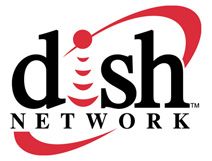Top Class Actions’s website and social media posts use affiliate links. If you make a purchase using such links, we may receive a commission, but it will not result in any additional charges to you. Please review our Affiliate Link Disclosure for more information.

The trial lasted two days with little time required for deliberations, as the eight-person jury quickly agreed that the plaintiff”s family’s privacy had been violated, and that Dish clearly violated the TCPA (Telephone Consumer Protection Act). Plaintiff Benjamin M. proved that Dish made the unsolicited phone calls to a cellphone belonging to his minor grandson without prior consent. Due to the fact that a minor’s privacy was also violated, the jury recommended that the court award Benjamin the damages according to TCPA policy, which would total $500 per unwanted call; this totaled $11,000.
U.S. Magistrate Judge Stephanie K. Bowman ordered the judgment against Dish in the amount of $11,000 in statutory damages last week, and had tagged an additional $1,000 in damages for two phone calls the jury determined Dish allegedly made in willful violation. According to the TCPA, an unintentional violation penalty is $500 but can go up to $1,500 per violation, if the company knowingly violates the TCPA. This TCPA lawsuit was actually filed in June 2013 and has achieved victory after a long litigation battle.
TCPA Lawsuit Overview
The legal drama for Benjamin started when a new Dish customer, who is not involved in this TCPA lawsuit, gave Dish consent to call a telephone number in March 2012, which initially had no similarities with Benjamin’s grandson’s cell phone number, for accounting purposes. However, the Dish customer fell behind in paying his bill, Dish called the provided number several times before the customer finally responded in May 2012; it was here when the customer asked Dish to change his contact number to the same four digits of the grandson. Both the parties agree this was an evasive action, which the Dish customer used to dodge calls.
However, Benjamin’s grandson reportedly started receiving unwanted Dish calls in early 2012 even though the Dish’s records were not updated until May 2012. At this time, it had been nine months after the plaintiff’s son spoke with a Dish representative and requested the company no longer call this number, and to be placed on their do-not-call list.
Previously, Dish had a favorable advantage in the TCPA lawsuit under the initial judge assigned to the lawsuit. The late U.S. District Judge S. Arthur Spiegel sympathized with Dish’s plight in trying to contact the customer who was dodging payments, initially only ordering the company to pay for several of the unwanted phone calls.
However after Judge Spiegal’s death, the TCPA lawsuit was assigned to Judge Bowman who amended the unsolicited phone call lawsuit, which ordered the company be held liable for 19 additional unwanted calls. With two of the TCPA lawsuits excluded before the trial, Dish was found accountable for 22 unwanted cell phone calls that were made between May 2012 and December 2012. The jury ultimately agreed with the plaintiff’s plight, as Dish continued to make unwanted contact with the plaintiff’s family despite explaining they were not the bad customer.
What is the Telephone Consumer Protection Act?
The TCPA is a federal policy established in the early 1990s designed to protect American consumers from unsolicited phone calls from businesses. These spam calls are often made by automatic telephone dialing systems, and are typically intended to collect on a bill or to advertise a service or product. Currently, it is illegal for companies to make any phone calls using automatic telephone dialing systems and companies must receive prior consent from the recipient. Additionally, if a customer asks to be put on the do-not-call registry, the company must adhere to that request for up to five years.
The TCPA Lawsuit is Case No. 1:13-cv-00436, in the U.S. District Court for the Southern District of Ohio.
Join a Free TCPA Class Action Lawsuit Investigation
If you were contacted on your cell phone by a company via an unsolicited text message (text spam) or prerecorded voice message (robocall), you may be eligible for compensation under the Telephone Consumer Protection Act.
ATTORNEY ADVERTISING
Top Class Actions is a Proud Member of the American Bar Association
LEGAL INFORMATION IS NOT LEGAL ADVICE
Top Class Actions Legal Statement
©2008 – 2024 Top Class Actions® LLC
Various Trademarks held by their respective owners
This website is not intended for viewing or usage by European Union citizens.














